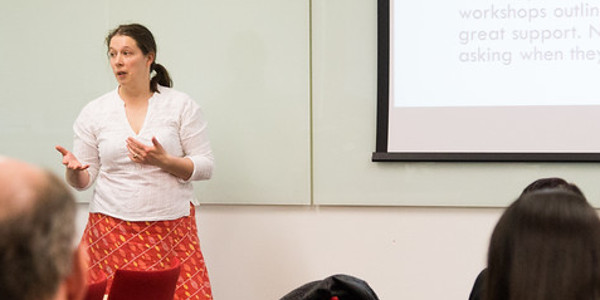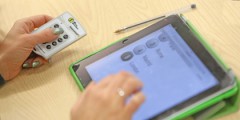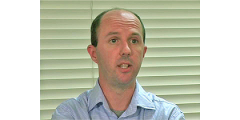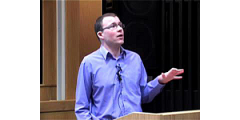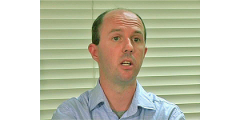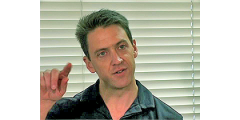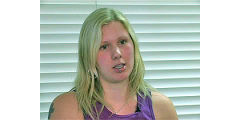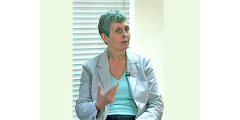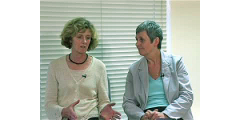A Vision for the Future BEng/MEng in Civil Engineering
April 23, 2015
Video >> Civil engineering is about integrating information for solving real world problems and students need to see their learning as integrated rather than in boxes defined by discipline. However, there is also a step change up from being a student to then being responsible for constructing a building. In this presentation we share our …
Using Student Feedback In Class To Enhance Understanding
May 2, 2014
Video >> Dr Matthew Boyd demonstrates how he uses Interactive voting in class at the Using Space and Technology to Enhance Learning event 2nd May 2014. Session abstract: This session focused on the use of electronic interactive voting systems within teaching activities including some examples of how it can be used effectively to enhance a learning …
Guiding students in reading for seminars
June 26, 2010
Video >> Kate: “What can you do to help and support students who are maybe struggling with those skills?” Nick Thomas: “We tailor the reading list very closely, or at least I do, for the seminars so that the recommended titles are made very clear for that particular seminar. It’s very clear which books are …
Using student response systems to improve interaction in lectures
February 23, 2008
Video >> Andrew Fisher, Philosophy: “Before, I was doing showing of hands in my modules, which is OK, but people are reticent sometimes to be seen, especially if the subject is quite controversial. So if I asked about fox hunting and there’s one person who thinks its OK they’re less likely to put their hands …
Introducing podcasting and WebCT: implications for dyslexic students
June 26, 2007
Video >> Richard: “It’s the second year of Biogeography teaching that I’ve been doing now for 6 years, and the lectures, like most lectures, they change a bit. But the core of them stays much the same, and to be quite frank I was getting a little bit bored of saying the same sorts of …
Setting up seminars for productive learning
Video >> Kate: “How to help students effectively prepare for seminars bearing in mind that there’s this wide set of skills which we want them to develop?” Nick Thomas, History: “I think it depends on the format, and I think it depends on how the seminars are done. Certainly the seminars that I run, there …
Planning module content: mind-mapping, podcasting and WebCT (now Moodle)
Video >> Richard Field, Geography: “I actually planned it out, and I wanted to deliver it via what we call mind maps. Our first years have a series of lectures called study skills, or series of sessions called study skills given by a colleague of mine, and we talk quite a lot about teaching with …
Learning from lectures: a dyslexic student’s view
June 18, 2007
Video >> Kate: “Are there any teaching and learning strategies that some of your tutors may adopt that are particularly supportive of your study?” Annie Evans, student, Archaeology: “The thing I’ve found really useful is we have one lecturer who just puts everything on WebCT (now Moodle), like seminar reading lists…absolutely everything, journals…and then its …
What is the first step for students being screened for dyslexia?
Video >> Barbara Taylor, Academic Support: “I think one thing that is happening is more and more students are coming and directly asking the question ‘Am I dyslexic?’, whereas in the past we’ve had students come and say ‘I’m struggling with this’ or ‘my essay’s not getting quite the good marks’ and you work with …
Dyslexic students and exams: giving effective feedback on performance
Video >> Kate: “What are the common problems that you hear about in relation to the formal written examinations as faced by a dyslexic student?” Barbara Taylor: “A number of my students sit with me and actually go through past papers as part of their preparation for exams. They are really anxious about answering the …

